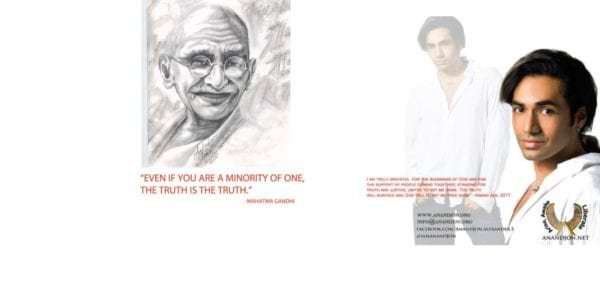 Prosecutorial misconduct occurs when a prosecutor breaks a law or a code of professional ethics in the course of a prosecution. In Berger v. United States, 295 U.S. 78 (1935), Justice Sutherland explained prosecutorial misconduct meant “overstepp[ing] the bounds of that propriety and fairness which should characterize the conduct of such an officer in the prosecution of a criminal offense.”
Prosecutorial misconduct occurs when a prosecutor breaks a law or a code of professional ethics in the course of a prosecution. In Berger v. United States, 295 U.S. 78 (1935), Justice Sutherland explained prosecutorial misconduct meant “overstepp[ing] the bounds of that propriety and fairness which should characterize the conduct of such an officer in the prosecution of a criminal offense.”
Prosecutors are entrusted with determining who will be held accountable when a crime occurs. They hold a great deal of power. They work with the police as they gather evidence and build a case against a suspect and then they take that case to court and are charged with convincing a jury of the guilt of the suspect. First a foremost, it is the prosecutor’s job to seek justice and present the judge and jury with facts and legal arguments that result is the conviction of the guilty defendant.
Sometimes, prosecutors find evidence that would tend to exonerate the person they are trying to convict. Because Prosecutors are charged with presenting the truth, the prosecution is obligated to turn over all exculpatory evidence to the defense. This can be difficult. Imagine that you are a prosecutor in the midst of a heated trial, fighting to get justice for a murder victim – a woman who you believe was murdered by her husband. You are absolutely convinced that this man beat his wife to death. In a police report, you find notes taken during an interview with the murder victim’s three year old child who witnessed the murder. The child told the police, “Daddy wasn’t home when mommy got hurt. A monster with a mustache hurt Mommy.”
A prosecutor in this position must turn over this evidence to the defense, even if it will torpedo the case against the defendant. Because the criminal justice system is adversarial – the prosecution and the defense battle against each other within the framework of the law – it is very difficult to hand the opponent the tools that could very well destroy your case. Nevertheless, it is the prosecutor’s duty to do so.
In 1987 in Texas, a prosecutor was faced with this dilemma. Michael Morton was convicted of murdering his wife based on circumstantial evidence. Morton’s defense attorney was never told about, or given access to, the police report in which Morton’s three year old son had told police that his daddy had not killed his mommy. After serving 25 years for murdering his wife, Morton was exonerated after attorneys were finally given access to the police report and DNA testing of a bloody bandana found at the scene of the murder matched a man who was serving a sentence for the murder of another woman. See Michael Morton’s CBS News story here.
Prosecutorial Misconduct Statistics:
In their analysis of the causes of wrongful convictions in cases where the conviction was overturned based on new DNA evidence, researchers found that prosecutorial misconduct was a factor in from 36% to 42% of the convictions.
Prosecutorial Misconduct Cases:
In Caldwell v. Mississippi, 472 U.S. 320 (1985), prosecutors misstated the law when arguing to the jury.
In Mooney v. Holohan, 294 U.S. 103 (1935), prosecutors knowingly used perjured testimony.
In Brady v. Maryland, 373 U.S. 83 (1963), the prosecutors suppressed evidence favorable to the defendant that might have led to a not guilty verdict.
In United States v. Schlel, 122 F.3d 944 (11th Cir. 1997), prosecutors ignored their obligation to disclose to the defense special treatment or promises of immunity they had given to a government witness in exchange for testimony against the defendant.
In United States v. Doyle, 121 F.3d 1078 (7th Cir. 1997), the prosecutor failed to disclose that the government had presented false evidence against the defendant.
In United States v. Alzate, 47 F.3d 1103 (11th Cir. 1995), the prosecutor made inflammatory, racially based remarks to the jury about the accused.
In United States v. Cannon, 88 F.3d 1495 (8th Cir. 1996), the prosecution presented perjured testimony to the grand jury.
In United States v. Cuffie, 80 F.3d 514 (D.C. Cir. 1996), the prosecutor failed to disclose that the government’s witness lied in earlier proceedings involving the crime that was the subject of the prosecution.
In United States v. Duke, 50 F.3d 571 (8th Cir. 1995), the prosecutor failed to disclose that a government witness had a criminal record.
In United States v. Horn, 811 F. Supp. 739 (D.N.H. 1992), the prosecution surreptitiously acquired the defense attorney’s work product.
In United States v. Roberts, 481 F. Supp. 1385 (C.D. Cal. 1980), the prosecutor misstated the law to the grand jury.
Prosecutorial Misconduct Articles:
The Ted Stevens Case: Ted Stevens was a longtime Republican senator from Alaska. Prosecutors concealed documents that would have helped Stevens defend himself against false-statements charges in 2008. You can read more about Steven’s ordeal here.
For a thorough review of prosecutorial misconduct, see:
Preventable Error: A Report on Prosecutorial Misconduct in California 1997-2009, Veritas Institute.
The Myth of Prosecutorial Accountability After Connick v. Thompson: Why Existing Professional Responsibility Measures Cannot Protect Against Prosecutorial Misconduct, by D. Keenan, D. J. Cooper, D. LeBowitz & T. Lerer.
The Relationship Between Prosecutorial Misconduct And Wrongful Convictions: Shaping Remedies For A Broken System, by Peter A. Joy.
Courtesy: California Innocence Project

